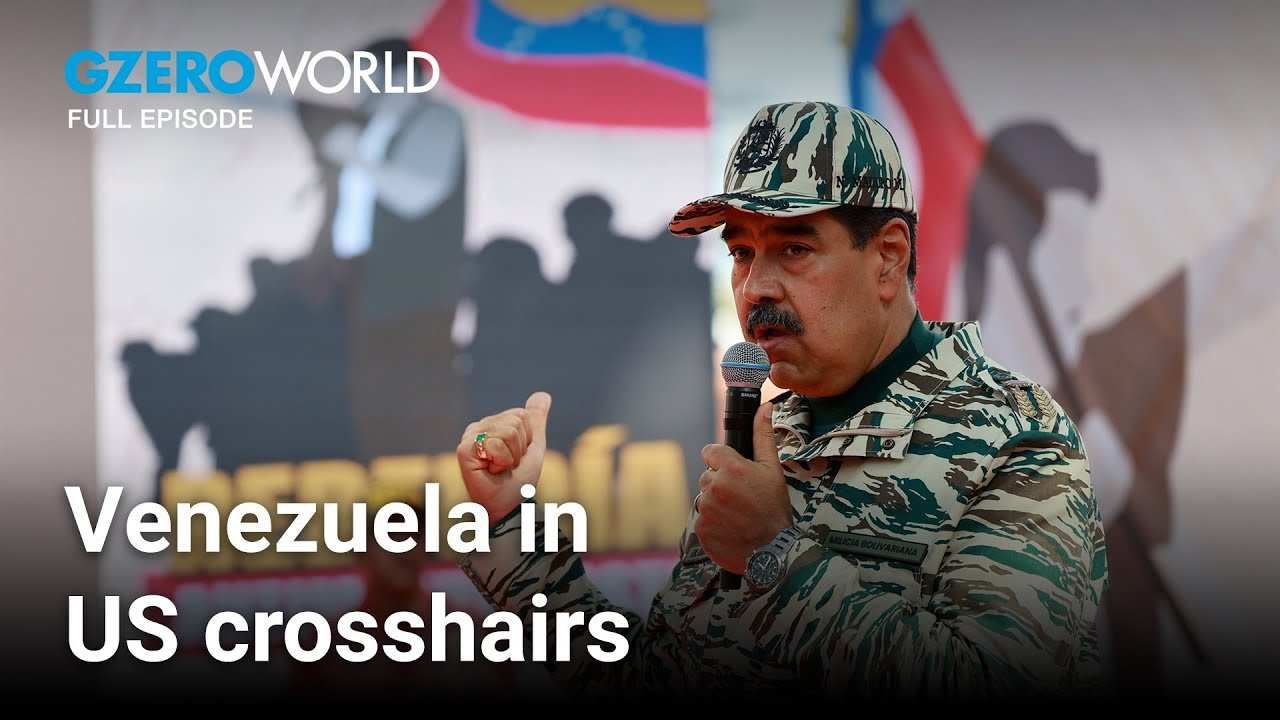November 24, 2025
If the US does intervene in Venezuela, former US Ambassador James Story explains why the real battle begins after boots hit the ground.
On GZERO World, Ian Bremmer sits down with Ambassador James Story, former US envoy to Venezuela, to examine one of the most urgent questions in US‑Latin America policy: could Washington go to war with Caracas? With US naval assets and aircraft carriers now stationed off the Venezuelan coast and President Trump declining to rule out deploying troops, Story says regime change is only the beginning.
“The easy part would be getting rid of Maduro,” Story says. “The hard work happens after that.” With lawlessness, paramilitary control, narco‑trafficking networks and a collapsed economy, Venezuela is broken. Story warns: “How do you trust any part of a government whose sole purpose was keeping a criminal organization functioning?”
Even if opposition leaders like María Corina Machado or Edmundo González take power, how do you rebuild faith in a government that, for decades, served only to protect a criminal enterprise? “You’re going to need the military,” Story says, “but it’s the same military that’s been keeping Maduro in power.”
The bigger question? If the US plays a role in removing Maduro, who takes the lead on what comes next—and how much are Americans really willing to take on?
GZERO World with Ian Bremmer, the award-winning weekly global affairs series, airs nationwide on US public television stations (check local listings).
New digital episodes of GZERO World are released every Monday on YouTube.Don't miss an episode: subscribe to GZERO's YouTube channel and turn on notifications (🔔). GZERO World with Ian Bremmer airs on US public television weekly - check local listings.
From Your Site Articles
- Regime change in America’s backyard? ›
- Is Trump aiming for regime change in Venezuela? ›
- Can Venezuela's opposition leader María Corina Machado unseat Nicolás Maduro? ›
- Is the US about to invade Venezuela? ›
- Trump wouldn't actually invade Venezuela...would he? ›
- Trump’s risky Venezuela strategy, explained ›
More For You
- YouTube
Is China’s economic model reaching a breaking point? In GZERO’s 2026 Top Risks livestream, Cliff Kupchan, Chairman of Global Macro at Eurasia Group, highlights mounting pressures on the Chinese economy.
Most Popular
2026 is a tipping point year. The biggest source of global instability won’t be China, Russia, Iran, or the ~60 conflicts burning across the planet – the most since World War II. It will be the United States.
While surgeons remain fully in control, technological advances are expanding the use of surgical robots in operating rooms. As adoption accelerates, so do the expectations for patient outcomes and surgical care. Track medical innovation trends with Bank of America Institute.
- YouTube
Europe enters 2026 under mounting strain as it confronts external threats, internal political pressures, and a weakening relationship with the United States. In GZERO’s 2026 Top Risks livestream, Mujtaba Rahman, Managing Director for Europe at Eurasia Group, describes a continent that is “exhausted, fatigued, weak, and vulnerable.”
© 2025 GZERO Media. All Rights Reserved | A Eurasia Group media company.
